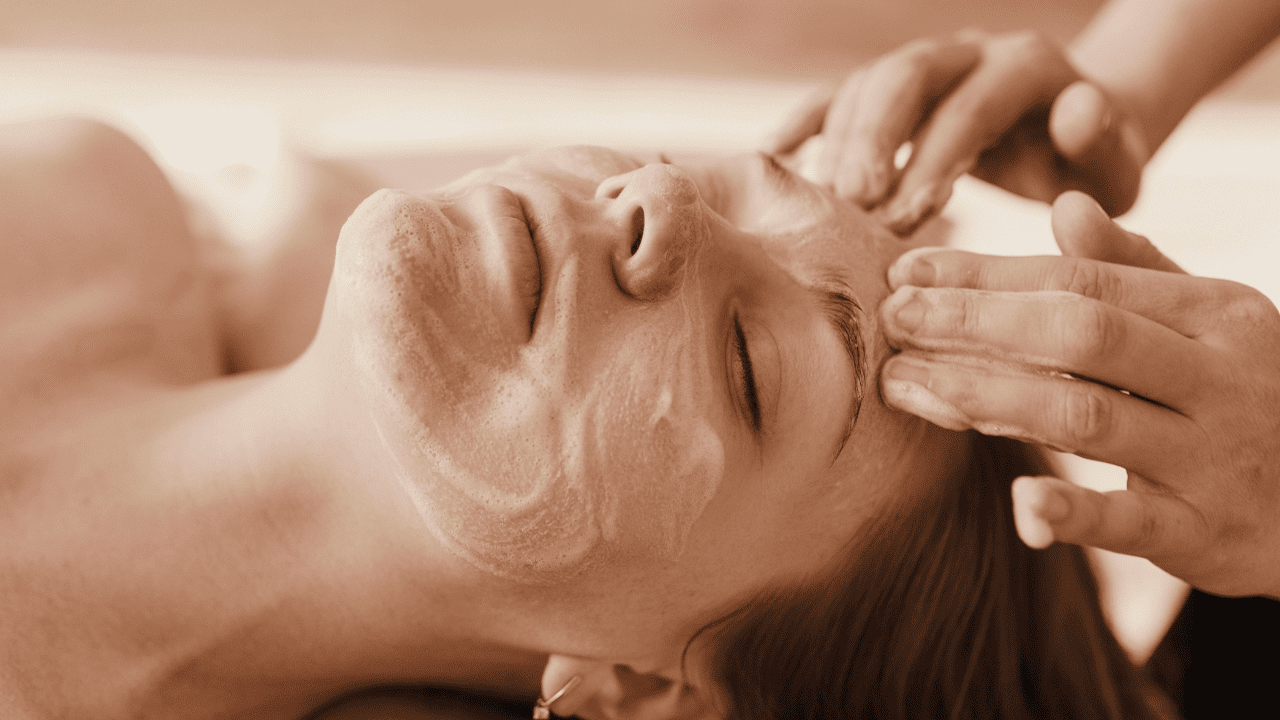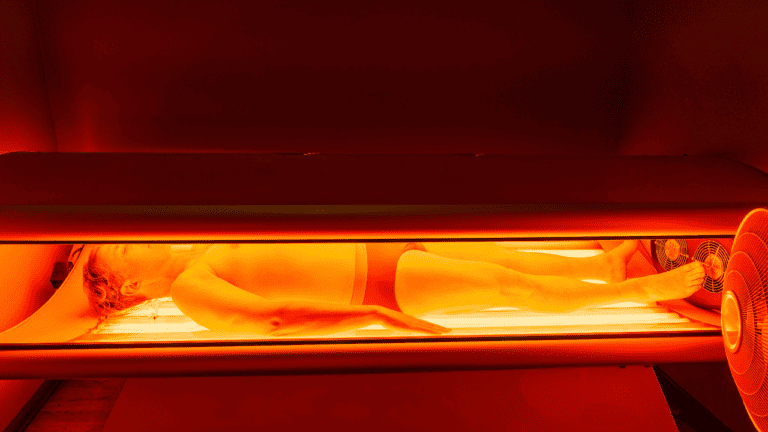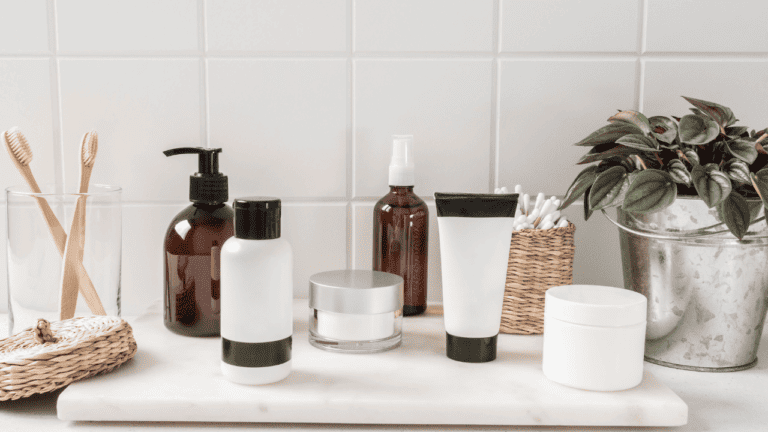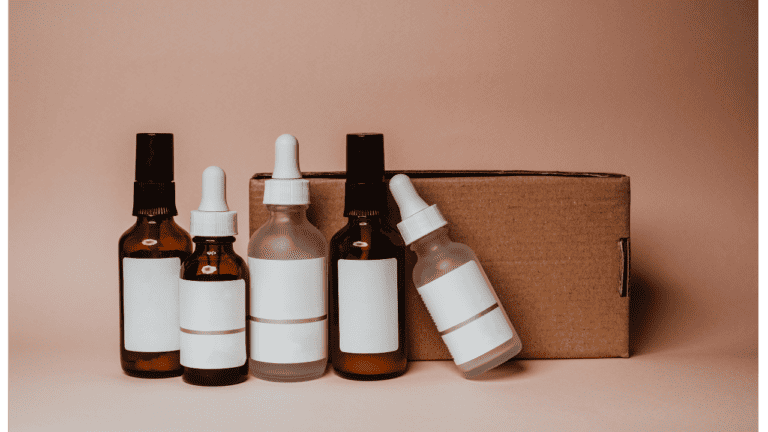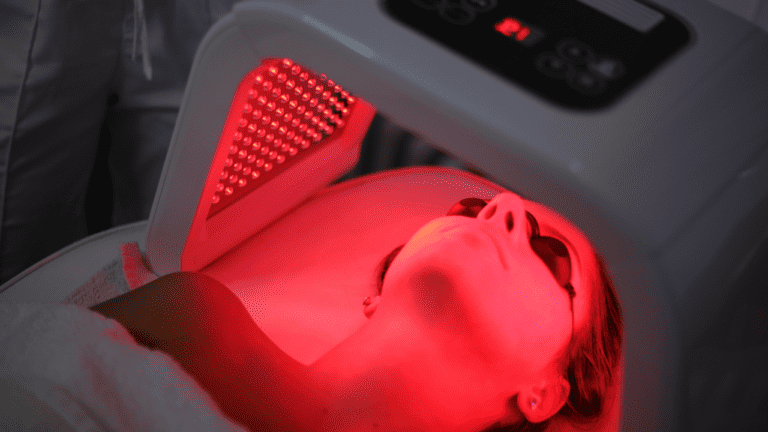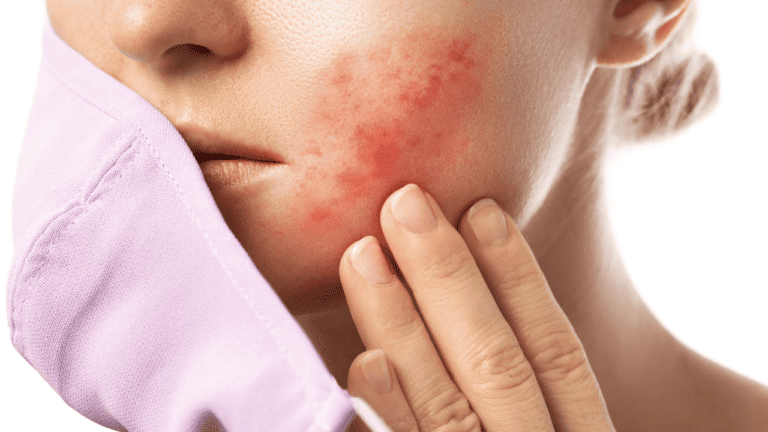Sulfur typically does not cause skin purging. It’s known for its anti-inflammatory and antibacterial properties, which are beneficial in treating acne and rosacea. However, while using sulfur, some people might notice a temporary increase in breakouts, as it helps in shedding dead skin cells and revealing underlying skin issues. It’s always advisable to start with lower concentrations and consult a dermatologist for personalized skincare advice.
Key takeaways
- Sulfur is effective against acne and rosacea, but typically doesn’t cause skin purging.
- Start with low concentrations of sulfur, especially for sensitive skin.
- Consult a dermatologist for tailored skincare advice.
The Science of Sulfur in Skincare
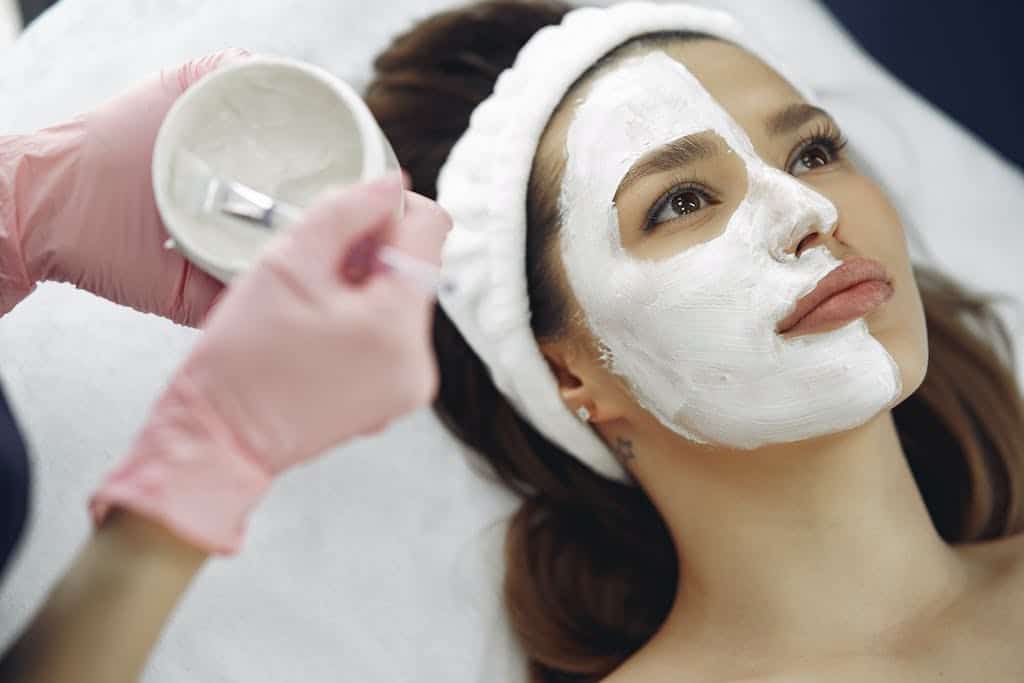
What is Sulfur?
Sulfur, an abundant, naturally occurring element, has been a staple in skincare for centuries. It’s no surprise, given its unique therapeutic properties, that sulfur continues to be a sought-after ingredient in modern dermatology.
Sulfur’s Mechanism of Action on Skin
When it comes to skincare, sulfur operates in three primary ways: as an anti-inflammatory, antibacterial, and keratolytic agent.
- Anti-inflammatory: Sulfur helps reduce the redness and swelling associated with inflammatory skin conditions, making it a go-to choice for treating acne and rosacea.
- Antibacterial: It combats bacteria on the skin’s surface, a critical factor in preventing and managing acne breakouts.
- Keratolytic Properties: Sulfur aids in shedding dead skin cells, promoting a smoother skin surface and preventing pore clogging, which is essential for maintaining clear skin.
Sulfur and Common Skin Conditions
Sulfur’s multifaceted approach to skin health makes it effective in managing various conditions. It’s particularly beneficial in treating:
- Acne: By reducing inflammation and bacteria, sulfur is a potent ally in the fight against acne.
- Rosacea: Its soothing properties help manage rosacea symptoms.
- Seborrheic Dermatitis: Sulfur’s ability to shed dead skin cells assists in controlling this condition.
Skin Purging Explained
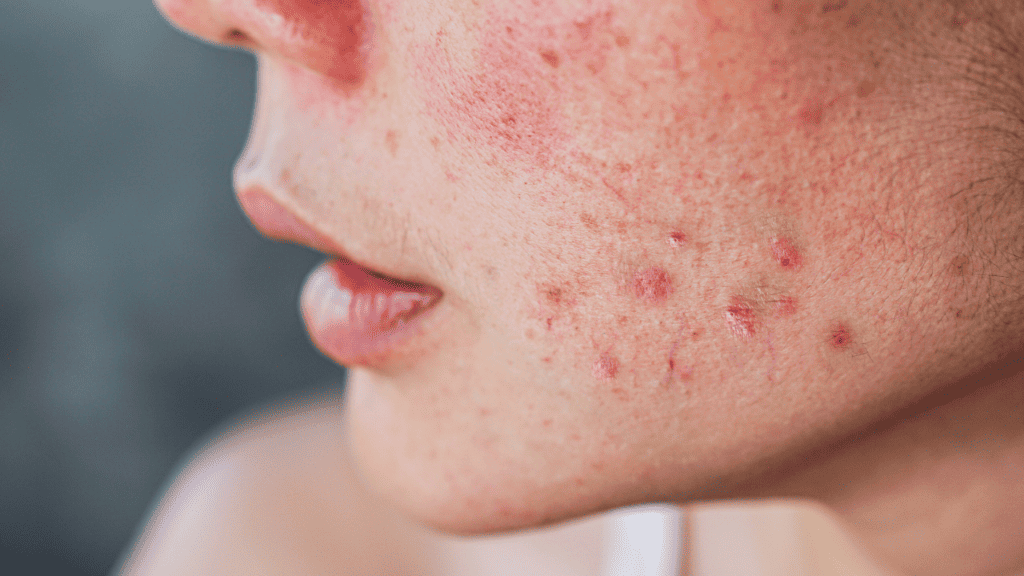
Skin purging is a process where your skin reacts to an active ingredient, resulting in a temporary increase in breakouts. It’s your skin’s way of adjusting to new products, especially those that accelerate cell turnover.
Purging vs. Breakouts
It’s crucial to distinguish between purging and regular breakouts. Purging is a temporary reaction that typically resolves within a few weeks, while breakouts are random and can occur anytime due to various factors like hormonal changes or stress.
Common triggers for purging include active ingredients like retinoids, AHAs, and BHAs, which increase cell turnover. Purging usually lasts from four to six weeks, the average lifecycle of a skin cell.
Sulfur and Skin Purging
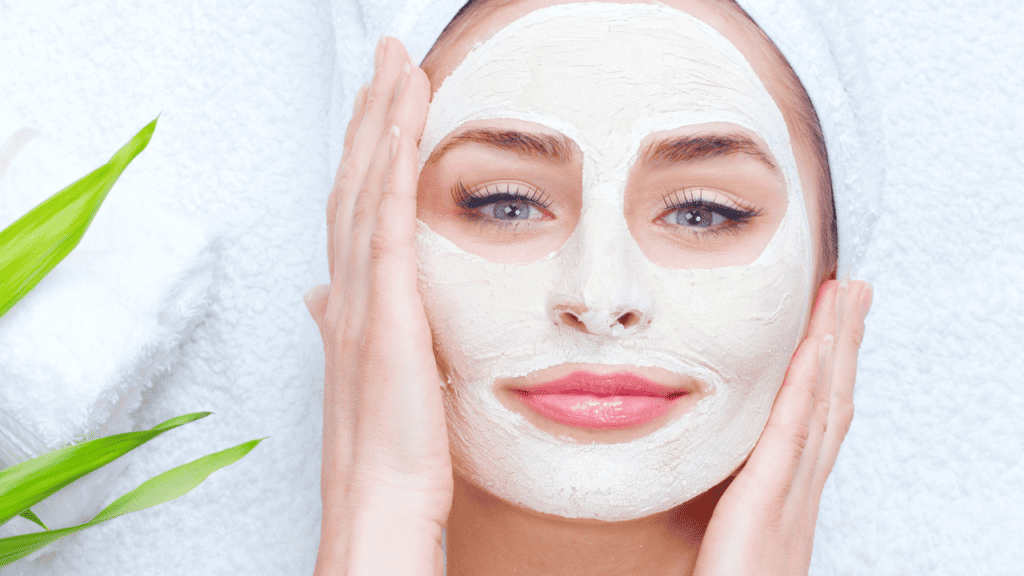
Does Sulfur Induce Skin Purging?
A pressing question for many is whether sulfur, known for its potent skin benefits, can cause skin purging. The answer is nuanced.
- Scientific Evidence: Current dermatological studies indicate that sulfur itself does not directly cause purging. However, as it accelerates the shedding of dead skin cells, it might reveal underlying issues like microcomedones, which can temporarily worsen before improving.
- Dermatological Insights: Most dermatologists agree that sulfur’s purging effect, if any, is mild compared to other active ingredients. It’s more about revealing existing skin issues than causing new ones.
Personal Anecdotes and Case Studies
While scientific studies offer one perspective, personal experiences can vary. Some users may report an initial increase in breakouts, which can be part of the skin’s adjustment to sulfur. However, these anecdotes often conclude with positive outcomes, highlighting sulfur’s effectiveness in long-term skin health improvement.
Benefits of Sulfur for Skin Health
Sulfur’s Multifaceted Skin Benefits
Sulfur, a timeless skincare element, offers a myriad of benefits for various skin concerns. Its multifunctional nature allows it to address and improve numerous skin issues effectively.
- Combating Acne: Sulfur’s ability to reduce inflammation and fight bacteria plays a crucial role in acne management. It targets the root causes of acne, offering a robust solution for those struggling with breakouts.
- Soothing Rosacea and Sensitive Skin: For those with rosacea or sensitive skin, sulfur acts as a gentle yet effective agent, reducing redness and calming irritation.
- Exfoliating and Renewing Skin: As a keratolytic, sulfur aids in exfoliating dead skin cells, promoting a smoother, more rejuvenated skin texture.
Suitability for Different Skin Types
Sulfur’s versatility extends to its suitability for various skin types. However, it’s crucial to note that individuals with dry or extremely sensitive skin should use sulfur-based products cautiously.
- Oily and Acne-Prone Skin: Highly beneficial, as it helps control oil production and reduce breakouts.
- Combination Skin: Can be used strategically on problem areas.
- Dry or Sensitive Skin: Advisable to use lower concentrations and moisturizing accompaniments.
Precautions and Side Effects
While sulfur is generally safe, it’s essential to be aware of potential side effects:
- Dryness and Peeling: Overuse can lead to skin dryness. It’s important to balance sulfur treatments with hydrating skincare products.
- Skin Sensitivity: Some may experience mild irritation. Patch testing is recommended before full application.
How to Use Sulfur in Your Skincare Routine
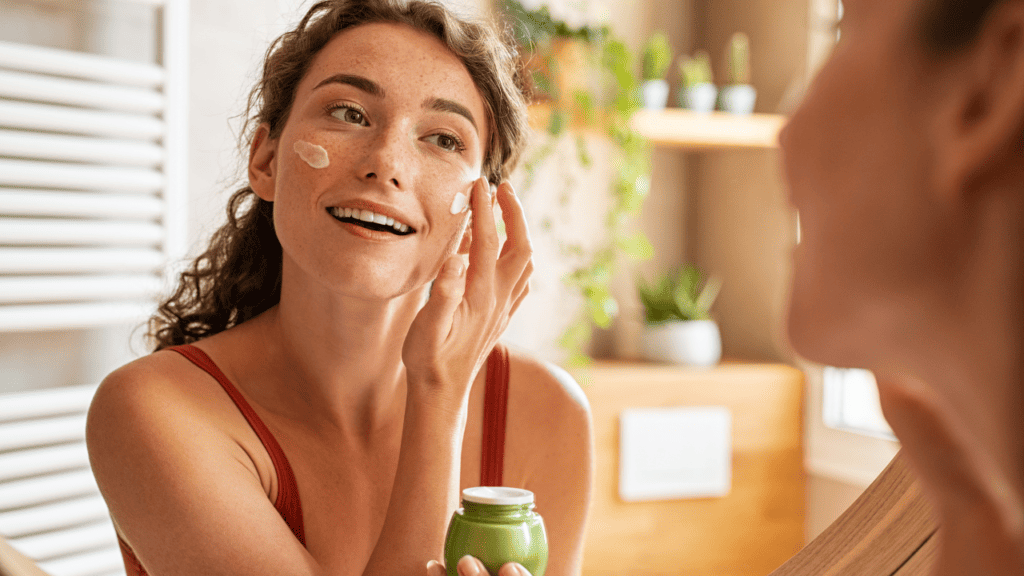
Incorporating Sulfur into Your Regimen
Integrating sulfur into your skincare routine should be done thoughtfully. Here’s how to start:
- Choosing the Right Product: Sulfur is available in various forms, including cleansers, masks, and spot treatments. Select a product that aligns with your skin type and concerns.
- Concentration Matters: Start with lower concentrations, especially if you have sensitive skin, and gradually increase as your skin acclimates.
Tips for First-Time Users
If you’re new to sulfur in skincare, here are some helpful tips:
- Patch Testing: Always perform a patch test to ensure your skin doesn’t react negatively.
- Gradual Introduction: Begin by using sulfur products once or twice a week, gradually increasing frequency based on your skin’s tolerance.
Combining Sulfur with Other Ingredients
While sulfur is effective, combining it with other ingredients can maximize benefits. However, it’s crucial to know what works well with sulfur:
- Do’s: Hydrating ingredients like hyaluronic acid and ceramides can counteract dryness. Niacinamide is also a great companion, enhancing sulfur’s anti-inflammatory properties.
- Don’ts: Avoid using sulfur with other potent actives like retinoids or high-concentration acids to prevent over-irritation.
Possible Causes Of Skin Purging
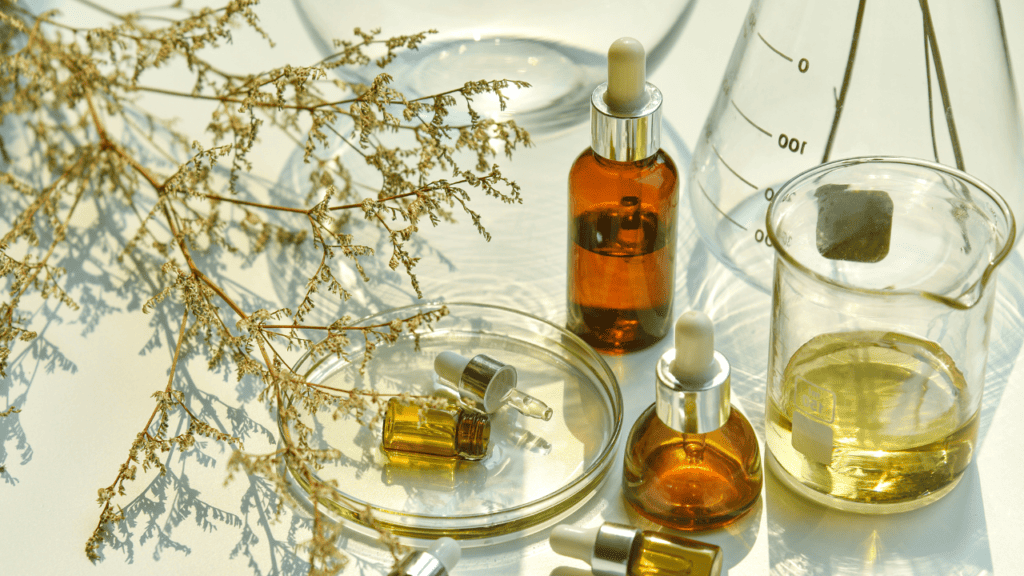
If sulfur isn’t right for you, or you’re curious about alternatives, consider these ingredients known to induce skin purging:
- Retinoids: Promote cell turnover but can cause initial purging.
- AHAs/BHAs: Alpha and beta hydroxy acids exfoliate the skin, potentially leading to purging.
For those seeking gentler options for acne prone skin, natural alternatives to sulfur include:
- Tea Tree Oil: Known for its antibacterial properties, it’s a milder option for acne-prone skin.
- Aloe Vera: Soothes and calms the skin, making it a great option for sensitive skin types.
Conclusion
While sulfur may not typically induce skin purging, its potent anti-inflammatory, antibacterial, and keratolytic properties make it a versatile and effective choice for various skin concerns, particularly acne and rosacea.
Remember, skincare is personal and what works for one may not work for another. It’s always wise to consult with a dermatologist, especially if you have specific skin concerns or conditions. Start slow with sulfur, and pay attention to how your skin responds. Balancing sulfur treatments with hydrating skincare products can help maximize its benefits while minimizing potential side effects.
FAQs
Can sulfur cause skin purging?
Sulfur typically does not cause skin purging; however, it may reveal pre-existing skin conditions due to its exfoliating properties.
Is sulfur suitable for all skin types?
Sulfur is beneficial for oily and acne-prone skin, but those with dry or sensitive skin should use it cautiously and in lower concentrations.
How often should I use sulfur in my skincare routine?
Start by using sulfur-based products once or twice a week, gradually increasing as your skin adjusts.
